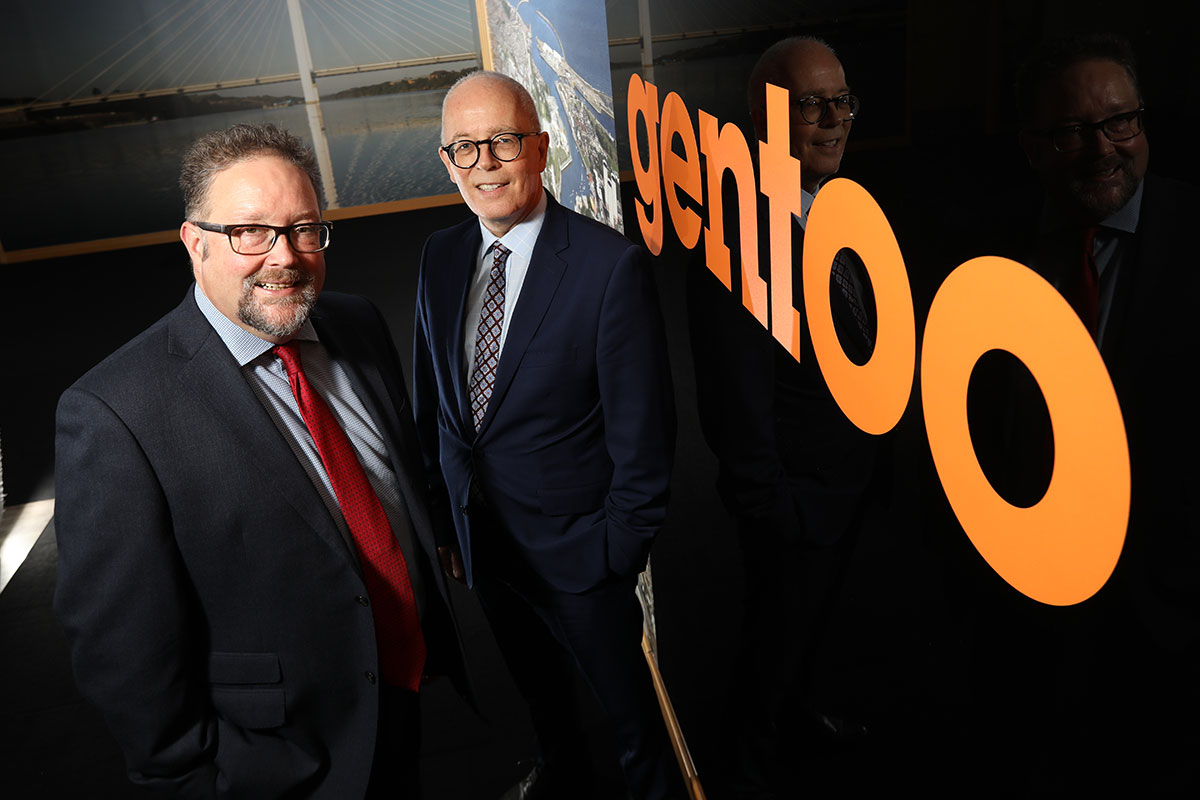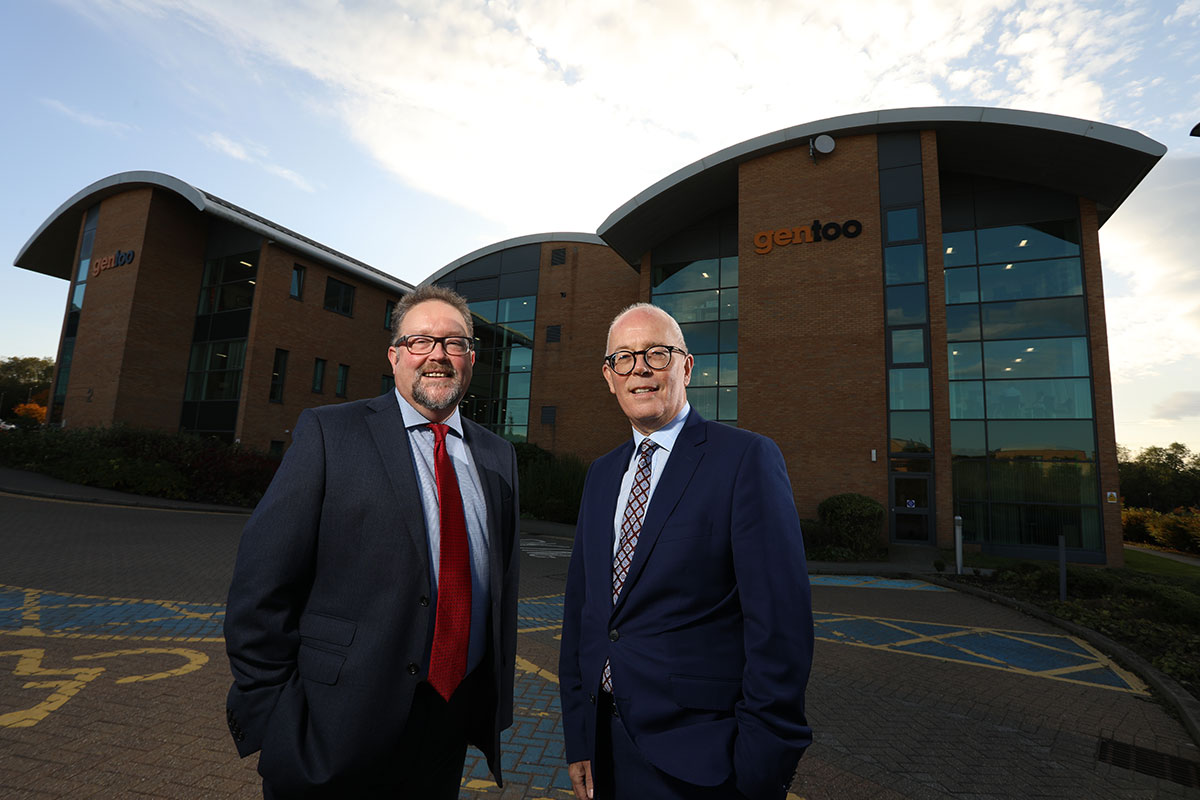You are viewing 1 of your 1 free articles
Gentoo: back from the brink
After spending two years on the regulator’s naughty step amid a scandal over executive pay, Gentoo looks to have turned a corner. Peter Apps travels to Sunderland to find out what comes next. Pictures by Crest Photography
Whatever Keith Loraine may have planned for his retirement, being castigated on primetime television probably didn’t feature very high on his list.
Nonetheless, this is the position the chair of Gentoo found himself in March last year, when he agreed to answer the BBC’s questions about the pay-off scandal which had overwhelmed the organisation.
“It was absolutely very unpleasant, very stressful,” he reflects. “We ummed and ahhed a little about whether it was the right thing to do because it’s a very, very difficult arena to step into.
“[But] reputationally I’ve been around for a long time in the North East and so I think it was recognised that it was right to front it out and answer the questions as honestly as possible and focus on what we were doing to put things right.”
This determination to front it out, accept failings and slowly move forward arguably sums up the way Mr Loraine has sought to turn Gentoo around during the past two years. And now those efforts are bearing fruit: last month, the regulator restored its compliant rating for the first time since 2017. And, perhaps more importantly, it is now activating major plans to build and improve homes in Sunderland. Nine months on from that awkward TV appearance, Inside Housing meets Mr Loraine and new chief executive Nigel Wilson to discuss the journey back.
The pay-off scandal first began to emerge in spring 2017, not long after Mr Loraine had joined the board, having recently retired as the longstanding chief executive of Newcastle-based Isos.
During preparation of the association’s year-end accounts, questions were raised regarding figures which “rang alarm bells”. When these were investigated further, it turned out a very large payment had been made with “the approvals process laid down in our policies not being followed”, in the words of Mr Loraine. The issues were self-reported to the regulator.
A legal process surrounding this settlement means Mr Loraine cannot go further into the details. But what is now in the public domain is that the payment was to Steve Lanaghan, a former assistant chief executive. It incorporated three times his contractual entitlement and an early release of pension funds, which took the total package (split over two years) to more than £1m. Mr Lanaghan, who declined to comment for this piece, has previously denied any wrongdoing.
But the big question for Mr Loraine, who took the appointment as chair just weeks before the story broke publicly in September 2017, was how the organisation’s board could have allowed this to happen.
"Maybe the relationship between some of the board members and some of the executives was too cosy"
Keith Loraine, chair, Gentoo
“I think it’s probably fair to say with hindsight that the culture of the board was one of trust in the executive team – which we all have to have. Maybe that trust went too far. Maybe the relationship between some of the board members and some of the executives was too cosy,” he says.
“I knew how the regulator felt about the excessive pay-off and excessive settlement. I’d had the letters, all of which were saying boards and executives must be absolutely vigilant, and the regulator will take a very dim view of anyone who doesn’t [comply]. It was a real shock to me it had been missed by Gentoo.”
With that in mind, it was not surprising that the regulator’s eventual judgement on the organisation was extremely strongly worded. Gentoo was accused of “a failure of governance at the most basic level” and downgraded to a non-compliant rating.
Mr Loraine has no complaints. “From the day we went to the regulator, it was a case of ‘mea culpa’. We accepted responsibility in full. The board knew it had missed it and we had to pay the price for that,” he says.
Mr Wilson, who took over as the new chief executive of the organisation in January this year, says the regulator’s comments demonstrated that Gentoo required reform. It had already had a less serious governance downgrade in February 2014.
“I think this was the final straw for the regulator,” he explains. “This was an organisation [which] they believed had got some bad behaviours built into it… I think people had been a long time in office and it just bred a culture that wasn’t healthy.”
For much of its history, Gentoo had been an organisation which prided itself on being different. Formed via a stock transfer from Sunderland Council in 2001, it had set its sights on ambitions bigger than the city. Following a rebrand in 2007, which saw it named after a species of penguin, an ambitious era of diversification began.
There was the Gentoo Genie ‘mortgage-free’ homeownership scheme launched in 2011. Plans were hatched to establish an energy company in 2014 and the group acquired Romag, a glass manufacturer in 2011. It is this last acquisition which perhaps best demonstrates how far Gentoo was moving from its core business: among other products, the firm made the highly specialised glass for high-speed trains, bulletproof glass and solar panels. It operates in a competitive and quickly changing market dominated by China-based manufacturers.
The organisation was also adopting a high-minded new philosophy which involved “improving the lives of people, communities and the environment” by encouraging the “Art of Living” among its residents. This placed a major emphasis on the green agenda and sustainability.
Then in 2015, this all came crashing down. The government’s rent cut slashed housing associations’ core income and Gentoo’s complicated structure could not cope. A total of 330 staff were made redundant, and the web of companies it owned was unwound.
“Being really honest, the level of due diligence that was undertaken was not appropriate,” says Mr Wilson. “In many ways the work they were trying to do on the green agenda was ahead of itself, but it was done in a way that did distract from the core. It was very ambitious to be a national player, but it lost that Sunderland focus.”
Driving this process was charismatic former chief executive Peter Walls. He led the organisation for 14 years following its formation in 2000.
It is fair to say that it was G1-compliant for almost all of this and the pay-off scandal happened two years after he left. But it is also fair to say Mr Walls’ vision drove the diverse business model the organisation followed.
“Organisations of whatever type will often reflect the leader of the organisation,” says Mr Loraine.
“I’m not criticising in any way the style of former leadership at Gentoo, but the language was very ambitious.”
Undoubtedly, Mr Walls, director of housing for Sunderland Council before the transfer, spoke passionately about the organisation’s mission, its commitment to the ‘Art of Living’ and what he called its one planet agenda. He was also among the highest earners in the sector, taking home £245,996 a year in 2016, despite Gentoo’s relatively modest size.
"I think people had been a long time in office and it just bred a culture that wasn’t healthy"
Nigel Wilson, chief executive, Gentoo
But despite these high ideals, all was not well with its core business. In downgrading Gentoo for the pay-off, the regulator made reference that “a substantial number of properties” did not meet the Decent Homes Standard.
Mr Loraine explains that this referred mostly to a stock condition survey which revealed some bowing in gable walls, of which even tenants were not aware. Nonetheless, he accepts that the conditions of some of the homes were not perfect.
“Since then we have looked more closely at the works which have been undertaken over the past 15 years and we are satisfied more investment should have gone into Gentoo homes in certain areas, and in particular in certain physical aspects, in terms of double glazing for instance where investment should have been taken a long time ago,” he says.
Gentoo is now setting about turning this round: in May it announced a five-year investment programme for its existing stock which will see £417m spent on improvements.
This programme, alongside plans for 900 new build properties, will be led by Mr Wilson. Recruited from Wythenshawe Community Homes, he presents a down-to-earth image and talks about the need for the organisation to “stick to the knitting”.
“It’s back to the basics of housing and running a strong organisation,” he says. “It is back to wanting to build houses in Sunderland.”
He sums up the previous mistakes with reference to a programme that allowed residents to choose any colour for their bathrooms. This resulted in selections such as “strawberry champagne and avocado”. “We’re still having to pick that up now,” he says. “So, lovely idea, but it’s the cost and the impact that has.”
Is he consciously presenting this image as a contrast to the bombast of his predecessor?
“I’ve been communicating that,” he admits. “I did a briefing a couple of weeks ago for Labour Party members on the council and they appreciated it because it was really straightforward.”
If the story of Gentoo was a novel, it would read as a parable about the perils of overambition, the gap between what we want to be and what we are. In trying to solve the world’s problems, it took its eye off the ball closer to home.
“There are key lessons to be learned in terms of not overstretching yourselves and remembering what you’re good at,” says Mr Loraine. “We are good at managing houses and delivering good services to tenants.
“We have proven to our cost that we weren’t very good at manufacturing glass, and we didn’t solve the world’s housing crisis by innovating on mortgage products.”
Do staff miss working at an organisation with such grand dreams? Mr Wilson says no. When he explained his new vision to staff, the overwhelming response was relief.
“At every level, they’d been frustrated by some of these big ideas because they hadn’t been involved in the decisions and the consequences were that colleagues were made redundant when the crash came,” he says.
“A large number of colleagues had been with the business before transfer, people with service of 20 and 25 years are common within the business, most of them live in Sunderland, they’re lifers if you like.
“They want to see [Gentoo] succeed and grow and have that respect in the community. And they’d been hurt by what had gone on because they felt it had been dented. Just being able to hold their heads up and not be subject to the local paper’s headlines was really important.”
While neither Mr Loraine nor Mr Wilson would say the problems are totally fixed, they are clearly moving forward. And they are now able to look to the future – in which Gentoo may have an important role to play for the city.
The housing association is the second-largest employer in Sunderland after the giant Nissan car factory, which has been assembling a vehicle every two minutes since 1986 and on which some 40,000 jobs rely. But some of these jobs have been shed this year, and fears remain that if the country crashes out of the European Union, they may disappear entirely.
“The North East is a very resilient area, it’s used to rebounding from adverse impacts, both industrial and political,” says Mr Loraine. “[But] you can’t mitigate for Nissan and the 40,000 jobs which depend on that… We’ve got to work around the table and plan for that. We have to prepare for what could be a challenging period.”
However this pans out, it feels like Gentoo’s renewed focus on Sunderland means both it and the city are better placed to face up to the challenges to come.
Gentoo: a Sunderland story
Following a turbulent three years, Pete Apps looks back at the recent history of Sunderland’s largest housing association.
















